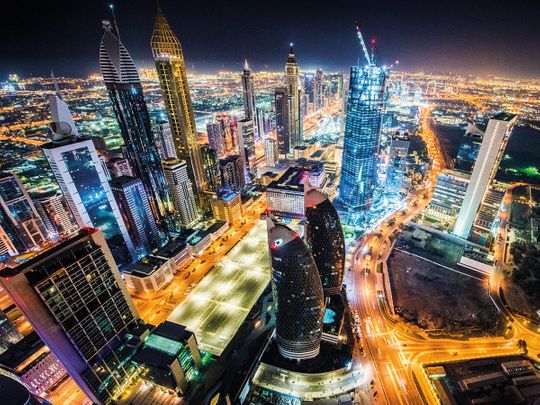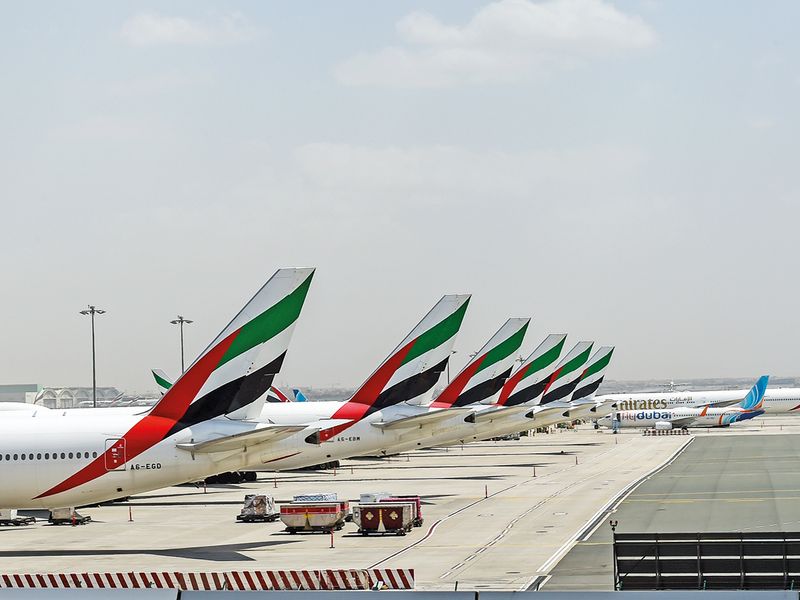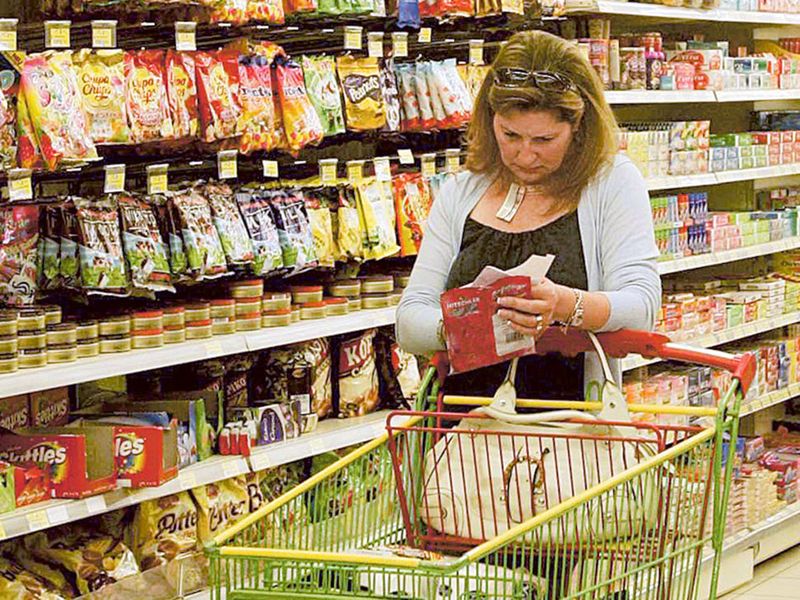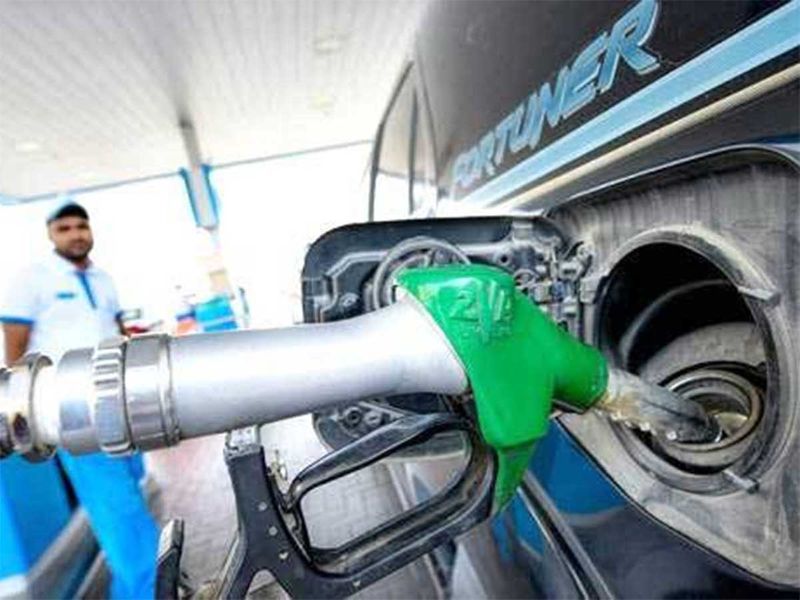
Highlights
The UAE economy began to show hints of recovery in the second half of 2020, and is now on track to post growth this year - rebounding fully by 2022, according to the Emirates’ central bank. But how does this affect your household spending and your fiscal matters in general? Read to find out more.
Dubai: The UAE, the Arab world's second largest economy, is well on track to record growth in 2021, as per various economic indicators, as it tracks a gradual global economic recovery from the impact of the COVID-19 pandemic.
Economic activity in the UAE continued its recovery in the last quarter and the economic growth is forecast to pick up to 2.5 per cent and 3.5 per cent, respectively in 2021 and 2022, according to the UAE Central Bank.
This followed conservative estimates from the World Bank, which predicted that the Dh1.52 trillion UAE economy would grow by 2.4 per cent in 2022, after a contraction of 6.3 per cent in 2020 and a one per cent rise projected for 2021.

Recovery in real estate prices, tourism spending
The latest central bank report said the residential real estate price decline slowed significantly in the fourth quarter of 2020, with prices in Abu Dhabi registering monthly gains in all months of the second half of 2020.
With many making use of lower real estate prices in the UAE, demand has been making a gradual comeback, which led to higher property prices as a result. Moreover, data also indicated that employment picked-up as well, marking four consecutive months of month-on-month increase as of December 2020. (Higher employment from the economy’s standpoint implies higher income and spending power, again, leading to higher demand.)
Tourism and hospitality data in Abu Dhabi in November and December show a recovery in occupancy and revenue, the best performance achieved since February 2020, owing to the resumption of international travel.
Full recovery to pre-pandemic levels in 2022
In 2022, the UAE Central Bank says a full recovery is expected, as a result of the continued increased government spending, improvement in employment and recovered business sentiment, with part of Dubai Expo 2021 taking place in 2022.
How UAE household spending rebounded
Economists have been tracking a normalised household spending pattern over the past months, with consumer spending nearly doubling since March last year, as the UAE government eased coronavirus-related restrictions to allow businesses and other economic activities to resume. Spending in restaurants and consumer spending on apparel too nearly doubled.
Retail sales in the UAE are expected to rebound and grow by 13 per cent to reach $58 billion (Dh213 billion) by the end of 2021, supported by consumer demand in the second half of the year, analysis from Dubai Chamber of Commerce and Industry projected this week.
UAE leads the Middle East region in household spending on e-commerce at $2,554 (Dh9,380) per household, which is twice the value of the global average of $1,156 (Dh4,245), and four times the value of the average in the Middle East region ($629 or Dh2,295).
How quickly UAE household spending set to improve
The consumer spending in the UAE is expected to grow by 4.1 per cent in 2021, compared to a 5.7 per cent decline in 2020 due to coronavirus (COVID-19), according to a recent report by the research and analytics arm of global credit ratings provider Fitch.
The report referred that improving economic growth in 2021, recovering oil prices, a revival of international tourism, and government stimulus measures will support disposable incomes in the UAE.
Hence, the average annual disposable income in the UAE is predicted to nominally grow by 12.4 per cent, versus a steep drop of 19.6 per cent in 2020.
Chances of inflation, return of employment levels
Inflation is projected to return this year in the UAE, although it will remain subdued nonetheless, analysis by FocusEconomics, a Spain-based provider of global economic consensus forecasts, revealed in their Consensus Forecast Middle East and North Africa report.

Higher spending implies more inflation
When there's a surge in demand for goods across an economy, prices increase, and the result is inflation. Economic expansion has a direct impact on the level of consumer spending in an economy, which can lead to a high demand for products and services.
Prices, affected by the rate of inflation, naturally impact consumer spending on goods significantly. Higher inflation rates erode purchasing power, making it less likely that consumers have excess income to spend after covering basic expenses such as food and housing.
So, in the UAE, stronger household and capital spending should bolster price pressures later in the year. Analysts project consumer prices to increase 0.8 per cent in 2021, which is unchanged from last month’s estimate, and 1.9 per cent in 2022.
Also employment levels remained stable in February, while the rapid vaccine rollout bodes well for activity ahead, analysts further add. Higher employment, implies being more financial sound (as indicated below), with income and spending levels increasing as a result.
The indicators that track financial soundness among residents also remained healthy, supported by the enhanced Targeted Economic Support Scheme (TESS), which was extended in November to extend loan re-payment deferrals and other regulatory relief measures until June 2021.
More government spending also implies higher inflation
While new government spending is needed to stimulate the economy, one reasoning is that an increase in government purchases might drive up the cost of production. In turn, this would drive up inflation.
The total economic support packages and initiatives provided by the federal and local governments since the beginning of the pandemic to date has reached a total of Dh395 billion, which makes up nearly 25 per cent of UAE GDP.
Global food prices climbed to the highest level in six years last month, according to a United Nations index. The surge has been driven by crop such as corn and soybeans, which are widely used to feed farm animals. That’s adding to food inflation worries for nations already strained after the coronavirus pandemic upended supply chains.
The move from UAE, which imports 90 per cent of its food and allows its economy ministry to control prices, comes as several other countries worldwide have come under inflationary pressures amid the global economy returning to pre-pandemic levels of functionality.

Oil’s role in economic recovery
Oil revenue is the UAE government’s main source of revenue and therefore any recovery in oil prices will boost the government’s ability to maintain high level of continued stimulus and therefore aid in economic recovery.
With the world’s seventh largest proven crude oil reserves, the UAE continues to be a dominant player in the global energy space. Oil exports account for around 25 per cent of the UAE’s overall exports.
As such, the economy’s fate is not just linked to overseas trade and tourism but also with oil prices. While demand for oil is still lower than normal, there are hopes of a speedier than expected economic recovery as vaccines are rolled out.
Oil prices are often seen as a barometer for economic activity. Termed "black gold", oil has now reached $60 (Dh220) a barrel having risen more than 50 per cent in the last few months.
What does recovery in oil prices mean for fuel expenses?
Oil prices have determined at least half of the price of each gallon (3.78 litres) of fuel over the last decade. As oil prices change daily, fuel prices are constantly fluctuating, too. The rest of the price of gas is based on refinery and distribution costs, corporate profits.
Last year, the combination of an oil price war and a worldwide pandemic helped to send the price of oil below zero, to nearly -$37 (negative Dh135) per barrel. Oil prices subsequently moved into positive territory, but the price of fuel remained lower than usual in most countries worldwide.
The fuel prices in the UAE are adjusted to international oil prices. The Organization of Petroleum Exporting Countries and its allies rescued the global oil industry from an unprecedented slump last year by slashing production when the coronavirus crisis pummeled demand. The strategy has revived international oil prices, shoring up revenues for the producers’ battered economies.
As a result petrol prices in the UAE have changed after remaining stagnant for almost a year. Petrol prices last month have witnessed an increase after 11 months.




_resources1_16a30b358e0_small.jpg)

